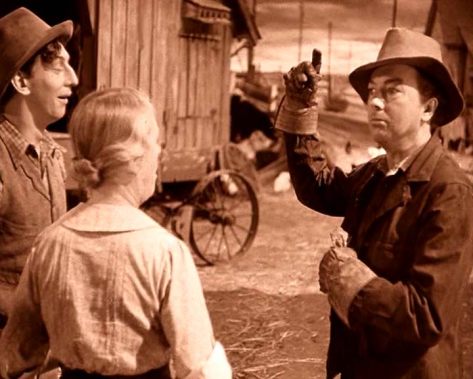A mystery surrounds “Next to Normal” — currently in production by the Reston Community Players. And it’s not the one you might think.
It seems that some well-meaning soul left a National Alliance of Mental Illness pamphlet detailing the symptoms of depression in my coat jacket while it hung guiltlessly in the lobby coat rack. Hmm. Is someone trying to tell me something?
Sure, I’m depressed. I’m depressed over the fact that other reviewers for other community theater websites — no names, because I don’t want you Googling and ogling their write-ups — gave away too much.
There’s a definite art to writing about art. And sometimes the onus is on us to play the artful dodger.
 Where is it written, you ask, that writers can’t dissect works containing, for lack of a better term, “plot twists”? When “The Crying Game” came out in 1992, reviewers signed an unwritten pact to not reveal the big reveal. The buzz alone drew folks in. That film’s true heroes were not the reviewers (some did reveal its big secret, but not without a honkin’ SPOILER warning attached) but fellow patrons, who managed to recommend it by word of mouth without saying too much. What fun is there in castrating someone else’s fun?
Where is it written, you ask, that writers can’t dissect works containing, for lack of a better term, “plot twists”? When “The Crying Game” came out in 1992, reviewers signed an unwritten pact to not reveal the big reveal. The buzz alone drew folks in. That film’s true heroes were not the reviewers (some did reveal its big secret, but not without a honkin’ SPOILER warning attached) but fellow patrons, who managed to recommend it by word of mouth without saying too much. What fun is there in castrating someone else’s fun?
Everyone loves a good surprise. Consider a zillion movies with cherished twists, from “Cabin in the Woods,” “Fight Club,” “The Village,” “The Sixth Sense,” “Primal Fear,” “The Others,” even 1960’s “Psycho.” When Alfred Hitchcock set about filming “Psycho,” he had his production assistants buy up every copy of the book it was based on so that virginal audiences wouldn’t guess the ending. Heck, 1939’s “The Wizard of Oz,” which may not have devised the “it was all a dream” device but perfected and popularized it, banked on conspiratorial capital at the start.
Over time, after everyone and their cousin have seen them, beloved creative works with well-kept secrets are ripe for the nit-pickin’. But, please, give it time.
 Films do it all the time — toy with their audiences. But how many stage shows can you name with secreted twists? “Next to Normal,” a powerful treatment on mental illness by Tom Kitt and Brian Yorkey, has been around only five years. All I can say is: shame, shame, shame on you, and you know who you are.
Films do it all the time — toy with their audiences. But how many stage shows can you name with secreted twists? “Next to Normal,” a powerful treatment on mental illness by Tom Kitt and Brian Yorkey, has been around only five years. All I can say is: shame, shame, shame on you, and you know who you are.
Suspense is defined as “a state or condition of mental uncertainty or excitement, as in awaiting a decision or outcome, usually accompanied by a degree of apprehension or anxiety.” How brilliant, then, to build suspenseful buzz around a stage show about mental illness? Just enough to keep people on edge, which heightens the experience.
There are a treasure trove of musicals we pretty much know the endings to before we go: “Titanic,” “1776,” “Jesus Christ Superstar” — well-known, predictable stories we find endless fascination in retelling. Then along comes an intriguing show where the plot is not well known, the subject matter seems a tad depressing and, I’ll give you, for which it seems hard at first to sell tickets. Theater troupes rely on reviews to drum up interest, yeah, but not to suck the life out of the work.
I know I feel anxiety every time I attend a production of “Next to Normal” with someone new. First, I research their life stories for potential triggers. Then I peek at the program and decide whether they should read theirs. In the case of RCP’s program, the answer was “no.” Then, I steer them away from Others, don’t allow them to make any friends in the lobby or bathroom. I keep them busy talking about something they are passionate about right up until curtain time. I pray that announcements by the house management will be brief. At last, the prelude begins, and my anxiety eases. I can sit back and enjoy the ride.
For those who have not yet seen it, but plan to go: Don’t read anything, for the love of art, just go. For all the rest of you: same deal.
And to the person who left the depression pamphlet in my coat pocket: I’m sure you meant well, unlike that misguided critic unworthy of being named, hence just another whatshisname spoil-sport.
(what was his name? what was his name? what was his namenamenamenamename?)
Related articles
- A “Next to Normal” review deemed safe for consumption (tis4theatre.wordpress.com)
